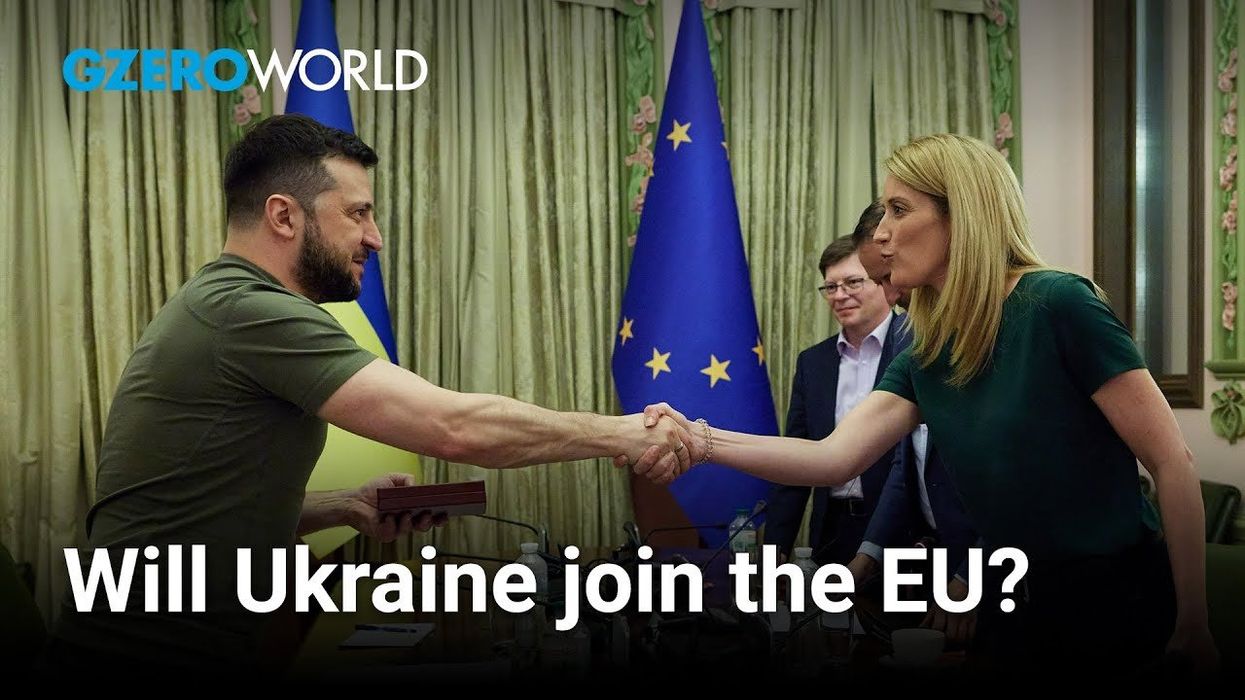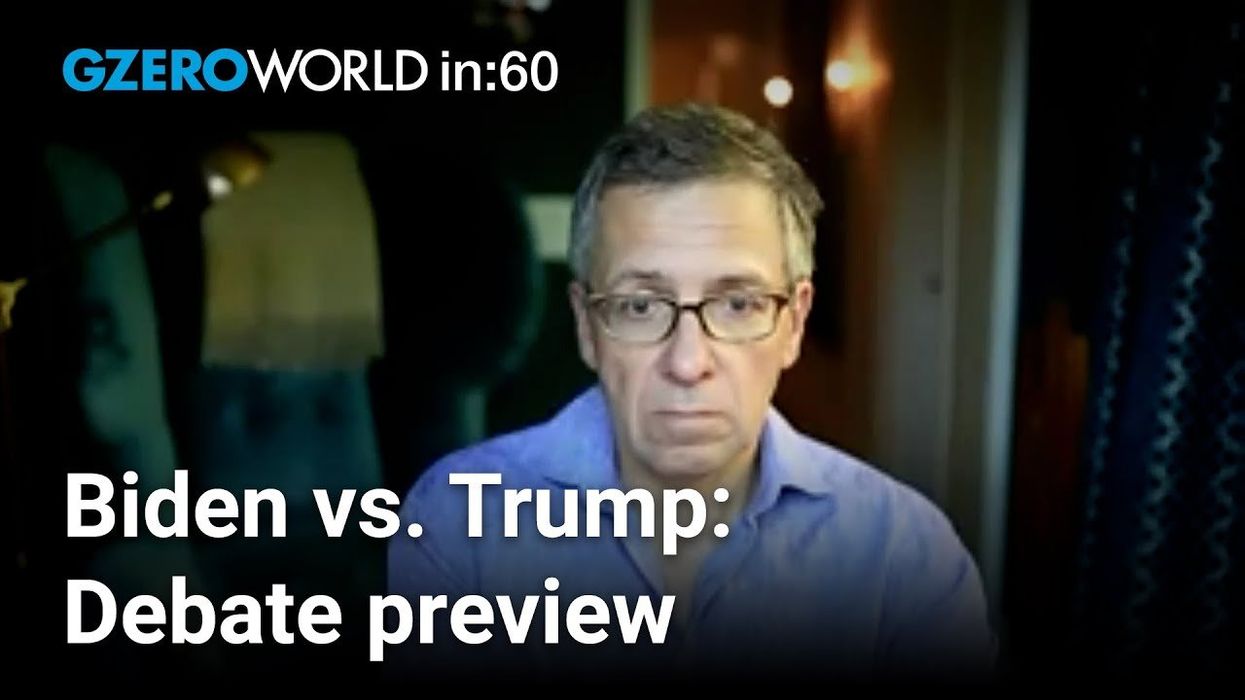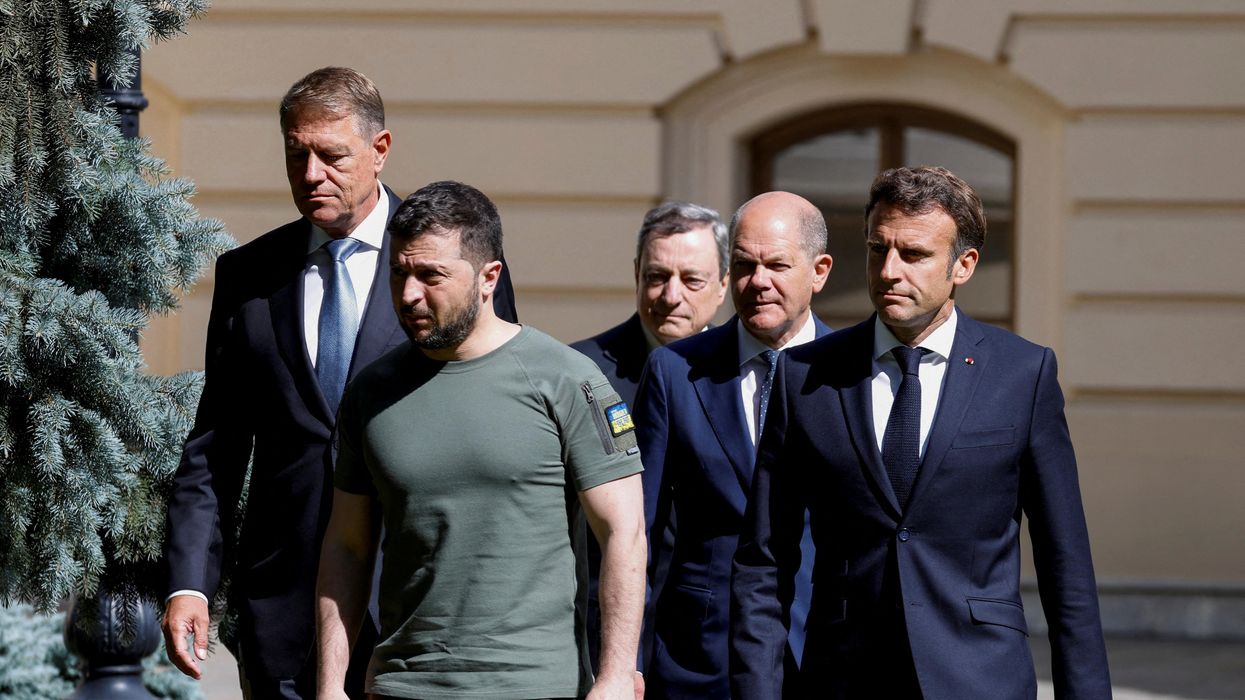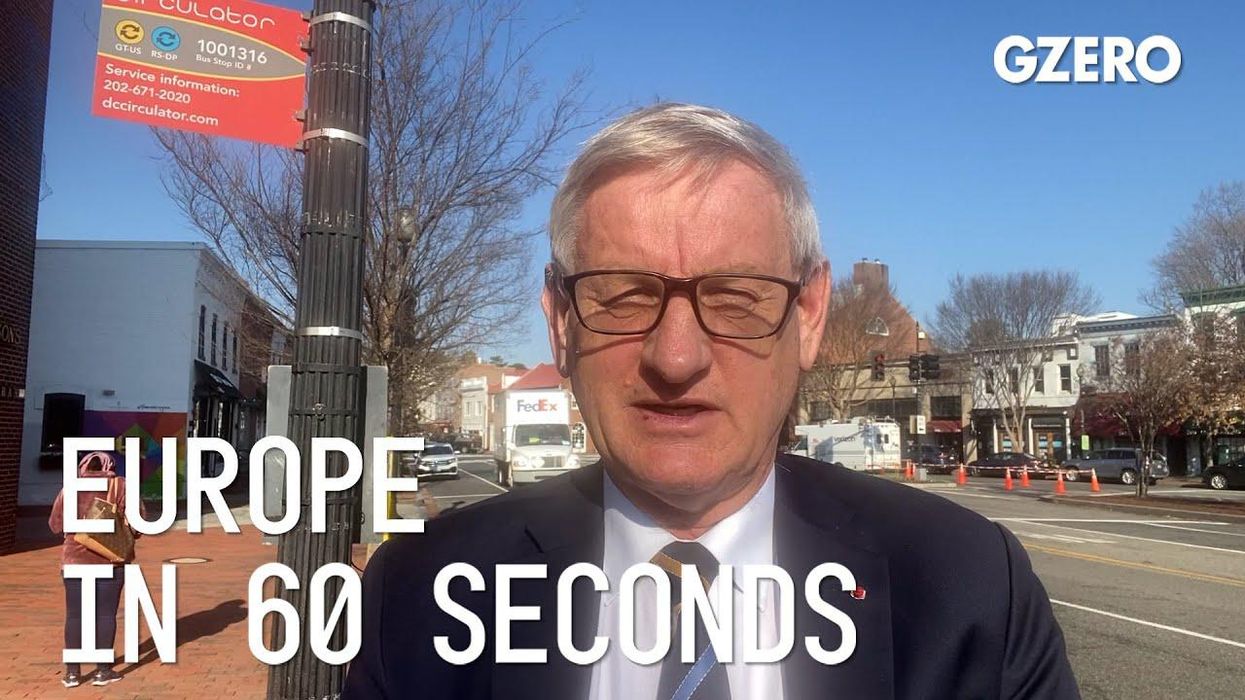GZERO World Clips
Ukraine and the future of Europe
As Russia’s invasion rages on with no end in sight, Ukraine’s future hangs in the balance. Continued US support is far from guaranteed, and future policy toward Ukraine won't be clear until after the dust settles from the US election. On GZERO World, Ian Bremmer sat down with European Parliament President Roberta Metsola, one of Ukraine’s staunchest defenders, to ask about its path to EU membership and the future of Europe’s strategic autonomy.
Oct 22, 2024





